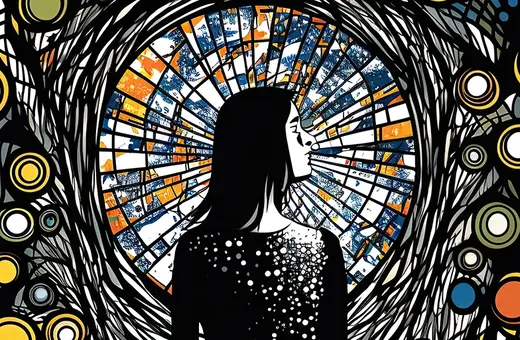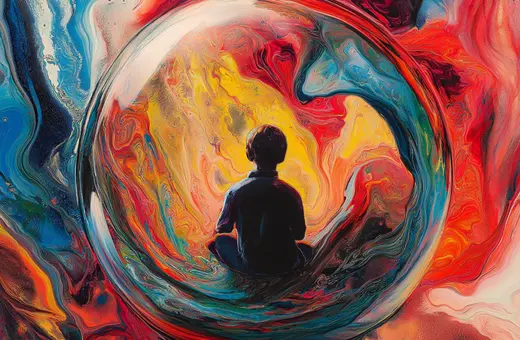Shamanic practices have long involved music and dancing with others while on mind-altering substances. A new study seems to suggest that the contemporary, secular version of that, taking psychedelic drugs while dancing at a rave, can induce similar experiences as those that religious rituals aim for: awe, social bonding and the feeling of belonging to something greater. And while personality traits, like openness, seemed to play a role in how likely people were to have a lasting transformative experience, the ritualistic context was key in helping participants overcome pre-existing meaning systems and gaining new perspectives, writes Valerie van Mulukom.
New research published in Frontiers in Psychology has demonstrated that engaging in dancing, listening to musical beats, being sleep deprived and taking (psychedelic) drugs during raves bonds people together, in a way that still shows effects up to five years after the event. A particular interesting aspect of these findings was that engaging in the 4Ds (dancing, drums, sleep deprivation, and drugs) only led to personal transformation and associated social bonding when the rave context induced awe. Awe is a complex emotion that involves self-transcendence, which happens when a focus on the self or boundaries of the self diminish to such an extent that one starts to feel connected to something bigger than oneself, whether the group of ravers one is dancing with, nature, the universe, or God. It was measured by feelings of connectedness, self-diminishment, perceived vastness, altered time perception, physical sensations, and a need to make sense of the experience. Experiencing these states as a result of the 4Ds led to personal transformation and social bonding.
Analyses demonstrated that the awe-inspiring ritual context of the rave that led to personal transformation and bonding was driven in particular by the amount of dancing and drugs the ravers had done. Importantly, they help alter our states of consciousness to an extent that we can transcend our normal boundaries of self and feel to become part of something bigger, like a group, but this transcendence also allows us to step away from the everyday and the mundane, into the surreal and sacred. Such experiences challenge pre-existing meaning systems and inspire people to new perspectives and ways of thinking. Thus, awe is not only an emotion associated with wonder, but also a meaning-making emotion that allows us to accommodate the perception of something (perceptually or psychologically) vaster than oneself. As such, it is an essential part of both for social bonding (feeling connected with a group larger than oneself) and personal transformation (incorporating new perspectives and insights).
Such experiences challenge pre-existing meaning systems and inspire people to new perspectives and ways of thinking.





















Join the conversation